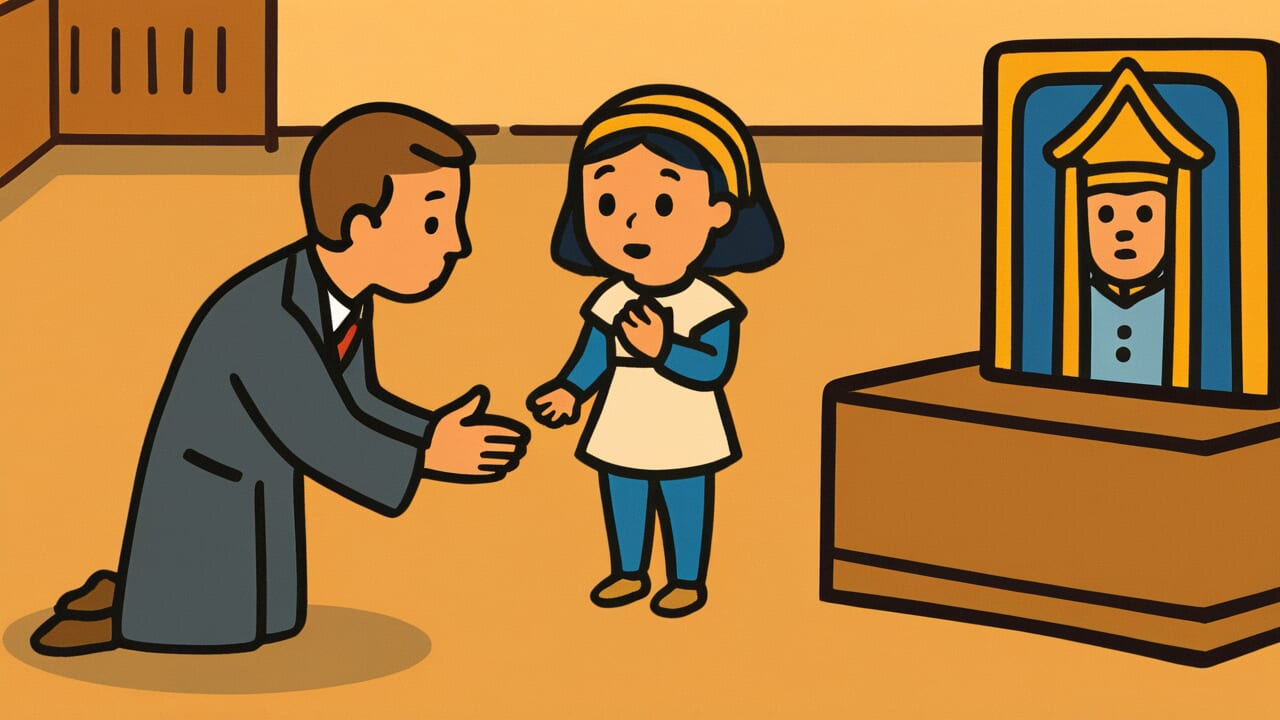How to Read “Yao’s son is not Yao”
gyō no ko gyō narazu
Meaning of “Yao’s son is not Yao”
This proverb means that the children of exceptional people are not necessarily exceptional themselves. No matter how talented parents are or how great their achievements, their children may not inherit the same abilities.
People use this saying when famous or successful people’s children fail to meet expectations. It also applies when second-generation business owners can’t match their parents’ skills.
The proverb warns against judging people solely by their bloodline or family background.
Yao’s son is not Yao shows that talent and ability don’t always pass through genes. They depend on individual effort and personal qualities instead.
This saying teaches us the danger of expecting children to ride on their parents’ coattails. It also reminds us that children can succeed in their own way, even if their parents weren’t exceptional.
Origin and Etymology
This proverb comes from the legendary Emperor Yao of ancient China. Yao was one of the Five Emperors, known as an ideal ruler who governed with virtue, compassion for his people, and brought peace to the land.
The interesting part is that Yao had a son named Danzhu. Despite his father’s greatness, Danzhu failed to inherit Yao’s virtue. According to tradition, Danzhu was foolish and unworthy.
Yao chose not to pass the throne to his own son. Instead, he gave it to Shun, a man of high virtue. This story has been passed down through generations.
From this tale came the lesson that even the children of great people don’t necessarily inherit their talents or virtues. It shows that personal qualities and effort matter more than bloodline or family status.
In classical Chinese thought, the relationship between Yao and Danzhu was often cited as criticism of hereditary succession. This philosophy spread to Japan and became established as a proverb.
Usage Examples
- The president’s son took over the company, but Yao’s son is not Yao—the business performance declined
- You can’t relax just because you’re from a prestigious family. Remember, Yao’s son is not Yao
Universal Wisdom
This proverb has endured because it reflects a deep conflict in human society. We instinctively expect the children of exceptional people to be equally outstanding.
This expectation comes from our trust in blood ties. It also stems from our psychological need for security and predictability. But reality often betrays these expectations.
Behind this phenomenon lies the complex mechanism of human development. Having exceptional parents can actually become a burden for children.
Constant comparison and high expectations can cause children to lose sight of who they really are. Growing up in a privileged environment doesn’t necessarily build strong character or creativity.
Human ability and character form through countless intertwined factors. These include genetics, environment, education, personal will, and even luck. This unpredictability makes human society both fascinating and challenging.
The proverb also criticizes discrimination based on bloodline or family background. It connects to universal human rights—the idea that every individual deserves evaluation as an independent person, regardless of their birth.
Our ancestors understood this truth: neither a parent’s glory nor their failures determine a child’s life.
When AI Hears This
When exceptional parents have ordinary children, it’s actually the statistical “law of regression to the mean” at work. For example, if you predict the height of a 190cm father’s son, genetic influence exists.
However, there’s a force pulling extreme values back toward the average. This isn’t because genetics are weak—it’s a mathematical inevitability that extreme values move closer to the median in the next generation.
When Galton studied parent-child heights in 1886, he found that tall parents’ children were indeed taller than average. But they weren’t as tall as their parents. This applies not just to height, but to intelligence and talent too.
For someone as outstanding as Yao to emerge, countless factors must align perfectly by chance. These include not just genetics, but environment and coincidence. In other words, Yao was a statistically rare occurrence.
When his child is born, genes are inherited, but that miraculous combination doesn’t reproduce entirely. It’s like rolling dice 100 times and getting all sixes, then expecting another 100 rolls to also be all sixes—the probability is nearly zero.
So it’s natural that Yao’s son is not Yao. In fact, having another Yao would be statistically impossible. This proverb isn’t lamenting the loss of talent.
Rather, it expresses a natural principle: after extreme values comes regression to the mean.
Lessons for Today
This proverb teaches modern people to judge others by their own qualities, not by titles or family background. It’s wrong to assume someone is talented just because they’re a celebrity’s child.
It’s equally wrong to underestimate someone’s potential because they come from an ordinary family.
For parents, the lesson is not to force your success story onto your children. Even if you have impressive achievements, your child is an independent person with their own personality.
Children have their own paths. Respecting that is true love, isn’t it?
For children, this proverb offers freedom from the pressure of being compared to parents. Even if your parents are exceptional, you can walk your own life path.
If you don’t achieve what your parents expected, that doesn’t diminish your worth.
In modern society, we live in an era where each person can choose their own way of life, free from family reputation or expectations. This proverb offers a warm message that affirms individual freedom and possibility.



Comments